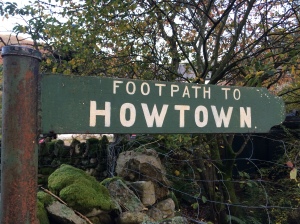The BBC has discovered that knowledge management is important, at least in the form of improving institutional memory. In a report for Radio 4’s Analysis programme, Phil Tinline writes:
Each time someone leaves their job, a chunk of the organisation’s memory leaves too. How, then, do you run complex systems, see through long-term projects, or avoid past mistakes?
Short-term contracts and outsourcing reduce the appetite for learning company or product history. And when job losses land, even more knowledge is lost.
In 2012, one institution found that, as City firms poached its bright young employees, its staff turnover was hitting 28% – faster, apparently, than McDonalds.
And for Her Majesty’s Treasury, after its experiences during the financial crisis, this was rather scary.
The report describes a number of initiatives in commerce, industry and the public sector, but I was particularly struck by the inclusion of the UK civil service as an institution suffering particularly badly from organisational amnesia. How is it that one of the world’s pre-eminent administrative cadres, studied by academics of all types, with record-keeping and archival traditions dating back hundreds of years, can forget experiences and decisions made just a few years ago?
Tinline suggests that staff turnover is an important component of the problem and I suspect that, as with many other organisations, the faster pace of work probably also plays a part. But what struck me was a reference to ‘folk memory’ by the outgoing Treasury Permanent Secretary. Without trying to read too much into the Permanent Secretary’s words, I think there may be a slight, but significant, difference between ‘folk memory’ and ‘institutional memory’.
When I learnt, and then taught, constitutional law, the civil service was still regarded as a very traditional force within British government. The research of Peter Hennessy and the comedy of Yes Minister suggested that centuries of experience were distilled into power exercised gently but forcefully to sustain a variety of constitutional norms. Almost invariably, senior civil servants were men, Oxbridge-educated, and with good networks across government through which traditions could be maintained. Those traditions contribute to a particular kind of folk memory that allows people to communicate and work more efficiently, since they can rely on a shared understanding.
Even when I was a student, this traditional approach was changing. The civil service recognised the need to improve the breadth of its recruits — drawing people in from roles in the private sector, and working to improve the diversity of recruitment — more women, and more non-Oxbridge graduates. At the same time, the civil service also found itself competing with political appointees — special advisers — for the ear of ministers. Yes Minister gave way to The Thick of It. There is no easy way for folk memory to be transmitted in a more fragmented system like this. What is needed is a concerted effort to develop and sustain shared understanding — the more formal institutional memory.
In a sense, folk memory can be sustained by lazy adherence to outdated standards of recruitment and advancement that lead to a lack of diversity. As organisations (not just the civil service) become more diverse, the benefits that come from diversity are matched by a new burden of finding new ways of ensuring that there is a proper understanding of the organisation’s history. This might be a personal obligation, as shown in the obituary of the late Chris Martin, the prime minister’s principal private secretary.
Martin, who has died of cancer aged 42, had always thought deeply about the place of the civil service in the constitution. He wrote his university dissertation on its role, and was a compulsive reader of biographies and political works that helped him understand its history and its place in the British story. The network of relationships he built up through successive jobs at the top of Whitehall was not just tactical; he used it wherever he could to enlist support for the civil service as an essential institution.
In Downing Street he set up a History Board with Anthony Seldon and Peter Hennessy to record and preserve No 10’s own story.
But organisations cannot rely on there being people like Chris Martin to take responsibility for learning like this. The range of examples provided in the BBC report show clearly that organisational amnesia is a widespread and pernicious problem. Overcoming it should be a priority. Doing so demands careful consideration of the problem, how best to address it, and proper resourcing of the prescribed remedy. What organisations should not do is avoid good current actions (such as improving diversity), simply because they may lead to future forgetfulness. That approach stands in the way of inevitable progress and is lazy.
Filed under: Culture, KM, Knowledge, Tradition
